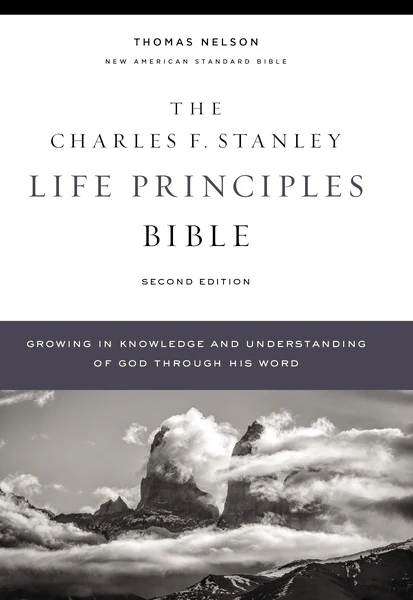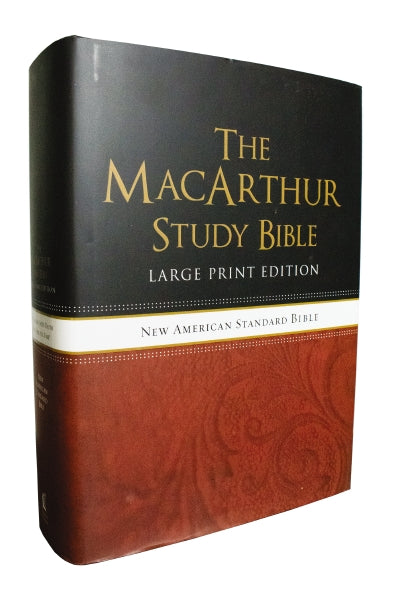Deuteronomy 20-21
New American Standard Bible
Laws of Warfare
20 “When you go out to battle against your enemies and see (A)horses, chariots, and people more numerous than you, (B)do not be afraid of them; for the Lord your God, who brought you up from the land of Egypt, is with you. 2 When you are approaching the battle, the priest shall come forward and speak to the people. 3 He shall say to them, ‘Hear, Israel, you are approaching the battle against your enemies today. Do not be fainthearted. (C)Do not be afraid, or panic, or be terrified by them, 4 for the Lord your God (D)is the One who is going with you, to fight for you against your enemies, to save you.’ 5 The officers also shall speak to the people, saying, ‘Who is the man that has built a new house but has not (E)dedicated it? Let him go and return to his house, otherwise he might die in the battle and another man would dedicate it. 6 And who is the man that has planted a vineyard but has not [a]put it to use? Let him go and return to his house, otherwise he might die in the battle and another man [b]would put it to use. 7 (F)And who is the man that is [c]betrothed to a woman and has not [d]married her? Let him go and return to his house, otherwise he might die in the battle and another man would [e]marry her.’ 8 Then the officers shall speak further to the people and say, ‘(G)Who is the man that is afraid and fainthearted? Let him go and return to his house, so that [f]he does not make his brothers’ hearts melt like his heart!’ 9 And when the officers have finished speaking to the people, they shall appoint commanders of armies at the head of the people.
10 “When you approach a city to fight against it, you shall [g]offer it terms of peace. 11 And if it [h]agrees to make peace with you and opens to you, then all the people who are found in it shall become your (H)forced labor and serve you. 12 However, if it does not make peace with you, but makes war against you, then you shall besiege it. 13 When the Lord your God gives it into your hand, (I)you shall strike all the [i]men in it with the edge of the sword. 14 However, the women, the children, (J)the animals, and everything that is in the city, all of its spoils, you shall take as plunder for yourself; and you shall [j]use the spoils of your enemies which the Lord your God has given you. 15 This is what you shall do to all the cities that are very far from you, which are not of the cities of these nations [k]nearby. 16 (K)Only in the cities of these peoples that the Lord your God is giving you as an inheritance, you shall not leave anything that breathes alive. 17 Instead, you shall [l]utterly destroy them, the Hittite and the Amorite, the Canaanite and the Perizzite, the Hivite and the Jebusite, just as the Lord your God has commanded you, 18 so that they will not teach you to do [m](L)all the same detestable practices of theirs which they have done for their gods, [n]by which you would (M)sin against the Lord your God.
19 “When you besiege a city for a long time, to make war against it in order to capture it, you shall not destroy its trees by swinging an axe against them; for you may eat from them, so you shall not cut them down. For [o]is the tree of the field a human, that it should [p]be besieged by you? 20 Only the trees that you know [q]are not fruit trees you shall destroy and cut down, so that you may construct siegeworks against the city that is making war against you until it falls.
Expiation of a Crime
21 “If a person who has been killed by someone is found lying in the open country in the land which the Lord your God is giving you to [r]possess, and it is not known who struck him, 2 then your elders and your judges shall go out and measure the distance to the cities which are around the one who was killed. 3 And it shall be that the city which is nearest to the person killed, that is, that the elders of that city shall take a heifer of the herd that has not been worked [s]and has not pulled in a yoke; 4 and the elders of that city shall bring the heifer down to a valley with running water, which has not been plowed or sown, and they shall break the heifer’s neck there in the valley. 5 Then (N)the priests, the sons of Levi, shall come forward, because the Lord your God has chosen them to serve Him and to bless in the name of the Lord; and every dispute and [t]violent crime shall be [u]settled by them. 6 And all the elders of that city [v]which is nearest to the person killed shall (O)wash their hands over the heifer whose neck was broken in the valley; 7 and they shall respond and say, ‘Our hands did not shed this blood, nor did our eyes see who did. 8 [w]Forgive Your people Israel whom You have redeemed, Lord, and do not place the guilt for (P)innocent blood in the midst of Your people Israel.’ And the guilt for bloodshed shall be [x]forgiven them. 9 (Q)So you shall remove the guilt for innocent blood from your midst, when you do what is right in the eyes of the Lord.
Domestic Relations
10 “When you go out to battle against your enemies, and (R)the Lord your God hands them over to you and you take them away captive, 11 and you see among the captives a beautiful woman, and are strongly attracted to her and would take her as a wife for yourself, 12 then you shall bring her into your home, and she shall (S)shave her head and [y]trim her nails. 13 She shall also [z]remove the clothes of her captivity and shall remain in your house, and (T)weep for her father and mother a full month; and after that you may have relations with her and become her husband and she shall be your wife. 14 But it shall be, if you are not pleased with her, then you shall let her go [aa]wherever she wishes; and you certainly shall not sell her for money, you shall not treat her as merchandise, since you have [ab](U)humiliated her.
15 “If a man has two wives, the one loved and (V)the other [ac]unloved, and both the loved and the [ad]unloved have borne him sons, and the firstborn son belongs to the [ae]unloved, 16 then it shall be on the day that he wills what he owns as an inheritance to his sons, he is not allowed to treat the son of the loved wife as the firstborn, [af]at the expense of the son of the [ag]unloved, who actually is the firstborn son. 17 On the contrary, he shall acknowledge the firstborn, the son of the [ah]unloved wife, by giving him a double [ai]portion of everything that [aj]he owns, for he was the (W)beginning of his [ak]strength; (X)to him belongs the right of the firstborn.
18 “If any person has a stubborn and rebellious son who does (Y)not obey his father or his mother, and when they discipline him, he does not listen to them, 19 then his father and mother shall seize him, and bring him out to the elders of his city [al]at the gateway of his hometown. 20 And they shall say to the elders of his city, ‘This son of ours is stubborn and rebellious; he does not obey us, he is thoughtless and given to drinking.’ 21 (Z)Then all the men of his city shall stone him to death; so (AA)you shall eliminate the evil from your midst, and (AB)all Israel will hear about it and fear.
22 “Now if [am]a person has committed a sin carrying (AC)a sentence of death and he is put to death, and you hang him on [an]a tree, 23 (AD)his body is not to be left overnight on the [ao]tree, but you shall certainly bury him on the same day (for (AE)he who is hanged is cursed of God), so that you (AF)do not defile your land which the Lord your God is giving you as an inheritance.
Footnotes
- Deuteronomy 20:6 Lit treat(ed) it as common
- Deuteronomy 20:6 Lit treat(ed) it as common
- Deuteronomy 20:7 A betrothed couple was considered legally married, but did not yet live together
- Deuteronomy 20:7 Lit taken
- Deuteronomy 20:7 Lit take
- Deuteronomy 20:8 As in LXX and other ancient versions; MT his brothers’ hearts do not melt like
- Deuteronomy 20:10 Lit call to it for peace
- Deuteronomy 20:11 Lit answers peace to you
- Deuteronomy 20:13 Lit males
- Deuteronomy 20:14 Lit eat
- Deuteronomy 20:15 Lit here
- Deuteronomy 20:17 Or put them under the ban
- Deuteronomy 20:18 Lit according to all the detestable
- Deuteronomy 20:18 Lit and you would
- Deuteronomy 20:19 Read as interrogative with ancient versions; MT the tree of the field is man
- Deuteronomy 20:19 Lit come before you in the siege
- Deuteronomy 20:20 Lit that it is not a tree of food
- Deuteronomy 21:1 Lit possess it
- Deuteronomy 21:3 Lit which has not
- Deuteronomy 21:5 Lit blow
- Deuteronomy 21:5 Lit according to their mouth
- Deuteronomy 21:6 Lit who are
- Deuteronomy 21:8 Lit Cover over, atone for
- Deuteronomy 21:8 Lit covered over, atoned for
- Deuteronomy 21:12 Lit do
- Deuteronomy 21:13 Lit remove from her
- Deuteronomy 21:14 Lit according to her soul
- Deuteronomy 21:14 I.e., by a forced marriage
- Deuteronomy 21:15 Or scorned; lit hated
- Deuteronomy 21:15 Or scorned; lit hated
- Deuteronomy 21:15 Or scorned; lit hated
- Deuteronomy 21:16 Lit against the face of
- Deuteronomy 21:16 See note v 15
- Deuteronomy 21:17 See note v 15
- Deuteronomy 21:17 Lit mouthful
- Deuteronomy 21:17 Lit is found with him
- Deuteronomy 21:17 I.e., power of procreation
- Deuteronomy 21:19 Lit and to the gate of his place
- Deuteronomy 21:22 Lit a sin is in a person carrying
- Deuteronomy 21:22 Lit wood
- Deuteronomy 21:23 Lit wood
New American Standard Bible®, Copyright © 1960, 1971, 1977, 1995, 2020 by The Lockman Foundation. All rights reserved.
Bible Gateway Recommends






